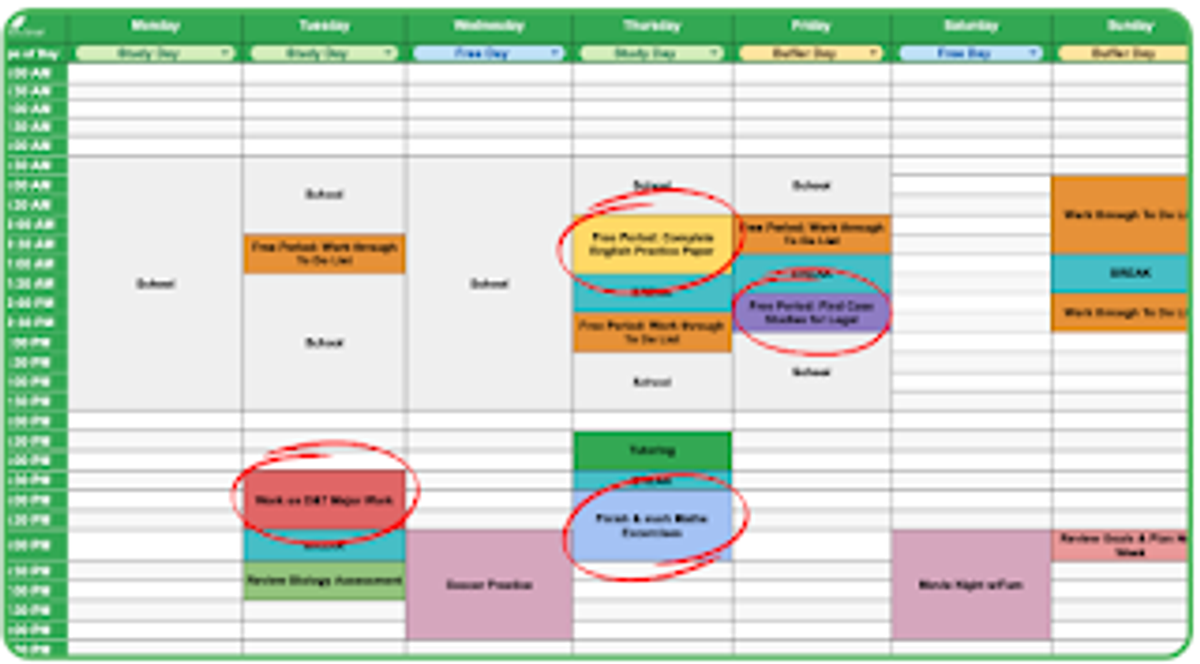Academic Counsellor News
Jenna Argall, Student Academic Counsellor

Academic Counsellor News
Jenna Argall, Student Academic Counsellor
Time Management
Time management isn’t just a good skill to have for homework; it’s a good skill to have for life!
A weekly plan will help you balance all your commitments. By following a guide, you’ll feel organised and less stressed. Without realising it, a routine will make you self-disciplined and stay motivated.
Start with a blank template.
Allocate time for the ‘fun’ activities first! Schedule in all your commitments - sport, work, hobbies, music lessons, socialising with friends and family, eating, walking the dog, watching a favourite TV show etc. You’re not a robot, so remember you also need time to just ‘be.’
Identify the time you wake up.
Work out what time you (should) go to sleep. The Royal Children’s Hospital recommends teenagers get 8-10 hours sleep. Next, shade out the hour before you go to bed so that you have time to wind down.
Now you can look at the times you have available to study! If you have a space longer than two hours, make sure you give yourself a break.


Things to think about:
What will you study during your study sessions? Will you base it on what’s due first, assessments coming up, subjects on the day, subjects on the following day, or subjects you have trouble with?
How is your life balance? Do you have to reassess any of your activities?
Are distractions stopping you from reaching your full potential? How will you reward yourself for staying focused?
Do you need help staying accountable?
Remember, a weekly plan is only a guide. You must be prepared to be flexible with your time as life is sometimes unpredictable! Also, every week is different, so make a new schedule each week.
Taken from:
Study Timetable | Elevate Education
A Step-by-Step Guide to Creating a Study Plan You'll Stick To